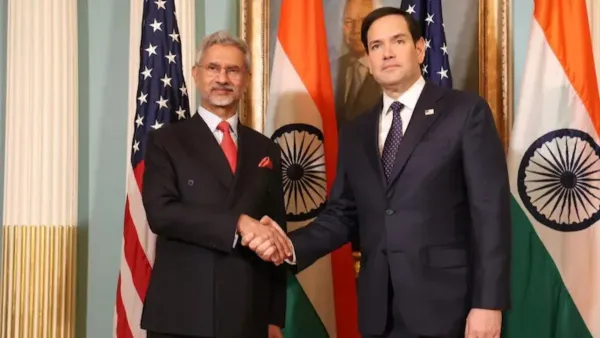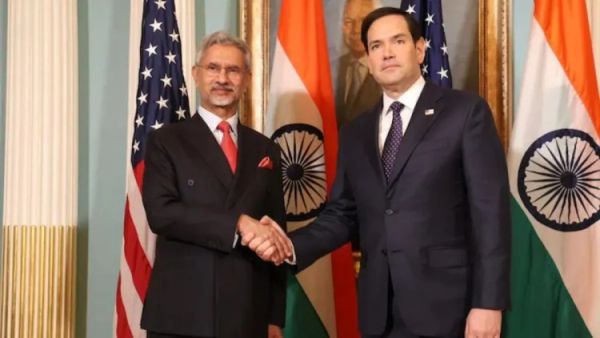
The necessity for “early conclusion” of the planned bilateral trade pact between the United States and India was agreed upon Monday by U.S. Secretary of State Marco Rubio and External Affairs Minister S. Jaishankar.

Days after US President Donald Trump imposed retaliatory tariffs for almost 50 nations, including India, the matter was a major topic of discussion during a phone call between Jaishankar and Rubio. Following Trump’s announcement of the tariffs on April 2, it was the first time the two parties had had high-level interaction.
According to Jaishankar’s post on X about the phone call, his colleague concurred that it is crucial that the bilateral trade deal between the US and India be finalised as soon as possible. He and Rubio discussed the Indo-Pacific, the Indian subcontinent, Europe, the Middle East, and the Caribbean, according to the external affairs minister (EAM).
“It was nice talking to @SecRubio today. shared viewpoints on Europe, the Middle East/West Asia, the Caribbean, the Indian subcontinent, and the Indo-Pacific,” he added. “Agreed that the bilateral trade agreement should be finalised as soon as possible. Anticipate staying in contact,” Jaishankar said.
“Indian External Affairs Minister Subrahmanyam Jaishankar had a conversation with Secretary of State Marco Rubio today. In addition to discussing ways to further cooperation in the Indo-Pacific area, the Secretary and External Affairs Minister reaffirmed the importance of the strategic relationship between the United States and India. The US side’s summary said, “They also talked about how to move forward with a fair and balanced trade relationship and U.S. reciprocal tariffs on India.”
A bilateral trade agreement between the US and India is now being negotiated. Trump and Prime Minister Narendra Modi agreed to negotiate the first phase of the bilateral trade deal by the autumn of 2025 during their February meetings in Washington, DC. During his visit to India last month, U.S. Assistant Trade Representative Brendan Lynch discussed strengthening the bilateral trade agreement with his Indian counterparts.
Trump declared reciprocal tariffs on US allies and any countries that levy higher taxes on US goods, in keeping with his “America First” strategy. The Trump administration wants to lower India’s trade imbalance and increase manufacturing, thus the US has proposed 26% reciprocal tariffs on the nation, claiming New Delhi slaps hefty import charges on American products. The 26% charge is in addition to the current tariff that Indian products in the US must pay.